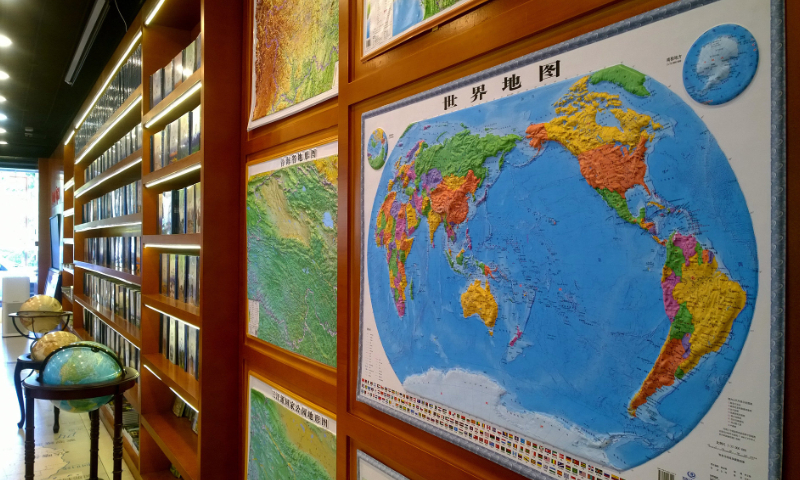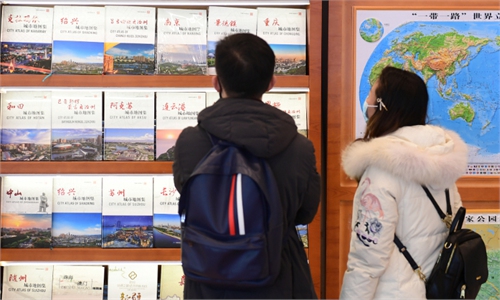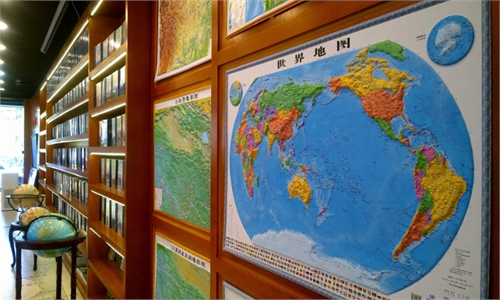
The photo taken on November 27, 2020 shows a map store in Beijing. Photo: VCG
Customs authorities in Ningbo, East China's Zhejiang Province, seized imported textbooks containing illegal maps that wrongly omitted the island of Taiwan in the Chinese map, in a latest map-related violation of China's standards for the content of maps.
The problematic textbooks were discovered in a shipment of inbound mail to Ningbo, and they violated the management regulations on maps and were suspected of undermining national sovereignty and territorial integrity and violating the one-China principle, according to the local customs authority.
With the upgrade of an intelligent graphic reviewing system, the risk prevention and control ability of the Ningbo customs has been improving, and they have seized multiple cases that involved a breach of the one-China principle.
In 2022, Ningbo customs seized over 70,000 items of prints and 16,000 problematic maps imported through cargo and 1,032 illegal publications by post, according to the Beijing Daily.
Outside of Ningbo, local customs authorities in multiple regions across the country including Beijing, South China's Guangdong, and East China's Shandong have seized maps, globes, teaching materials and children's books that violated the one-China principle.
In October of 2021, local customs in Heshan, South China's Guangdong, seized a shipment of foreign language children's reading material that contained a total of 19 mistakes in three maps including obvious errors in boundary drawing and related marking.
In June 2022, customs at Beijing Capital International Airport seized three problematic maps sent from abroad through international express courier. These maps contained apparent mistakes about parts of China's boundaries, and markings of Taipei city in the island of Taiwan of China did not comply with relevant regulations.
In December 2022, local customs in Qingdao, Shandong, seized a batch of 120 sets of problematic maps in exported cargo. The maps omitted China's Diaoyu Islands, Chiwei Island and the islands in the South China Sea.
Prints and publications that do not comply with China's map content management regulations are prohibited by law.
In order to strengthen map management, safeguard national sovereignty, security and development interests and promote the healthy development of the geographic information industry, China's Ministry of Natural Resources on Tuesday issued the latest standards for the contents of maps.
The regulations state that a map of China should always accurately reflect the scope of China's territory.
The documents for examination and approval of maps to be imported or exported and the map examination numbers shall be submitted to the customs, and active cooperation with the customs in carrying out such work is required.
Global Times


